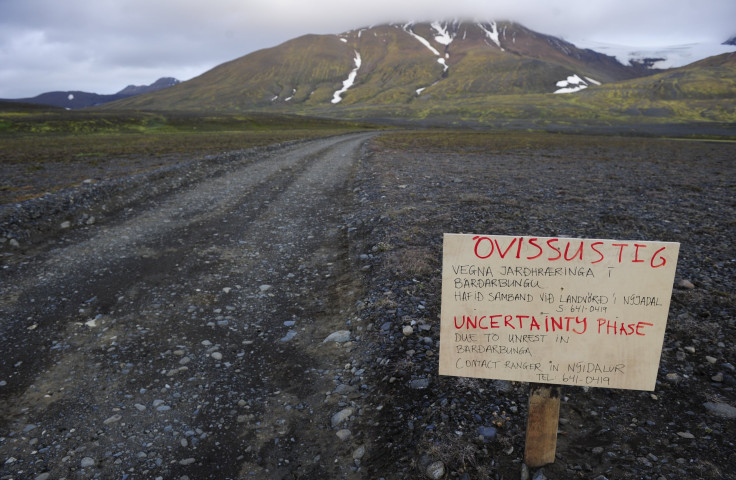Bardarbunga Volcano Update: Iceland Retracts Eruption Alert But Continues Monitoring Tremors

Seismic activity at Iceland's Bardarbunga volcano has eased following a series of earthquakes Sunday, the country’s Met Office announced on Monday. Authorities are currently monitoring tremors at the volcano, after they removed a ban on air traffic around the nation's largest volcanic system.
According to the Icelandic Met Office, authorities observed a magnitude 5 quake late on Sunday but there were no signs of a volcanic tremor in the region, prompting authorities to lower the threat alert over the Bardarbunga volcano from red (alert phase) to orange (emergency phase), Reuters reported. However, the authorities would not rule out an eruption.
“There have been no large events at the Bardarbunga volcano since yesterday (Sunday) and there is no sign of volcanic tremors,” Reuters quoted Gunnar Gudmundsson, a geophysicist at the Met Office, as saying. “There is still high activity, but maybe not so intense as yesterday.”
The Met Office lowered the alert level after a flight over the area reported no eruption even as the rumbling at the volcano intensified, Bloomberg reported.
“There are no indications that the activity is slowing down, and therefore an eruption can’t be excluded,” the Met Office said Monday. “Observations show that a sub-glacial eruption did not occur yesterday. The intense low-frequency seismic signal observed yesterday has therefore other explanations.”
However, the police said that restrictions on roads and areas in Jökulsárgljúfur canyon up to Dettifoss waterfall would still be in effect, as well as closures in the highlands north of Vatnajökull glacier.
On Saturday, a small eruption at the Bardarbunga volcano prompted the Met Office to issue a red alert, signifying that an “eruption is imminent or in progress -- significant emission of ash into atmosphere likely.”
In May 2011, ash from Iceland’s Grimsvotn volcano forced flight cancellations in Scotland, northern England and Germany. In April 2010, an eruption of the Eyjafjallajokull volcano forced the cancellation of more than 100,000 flights, affecting nearly 10 million passengers.
© Copyright IBTimes 2024. All rights reserved.






















